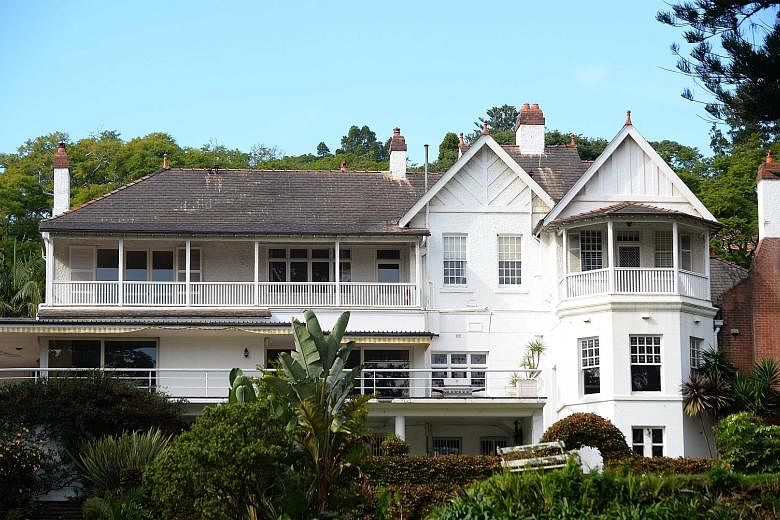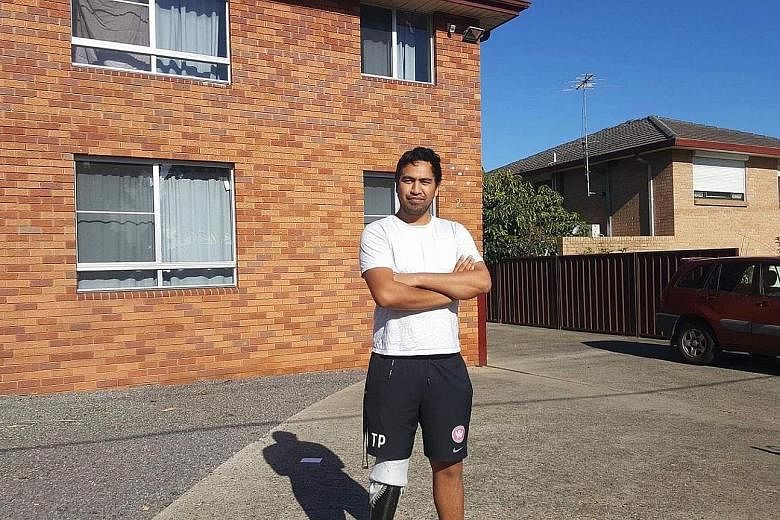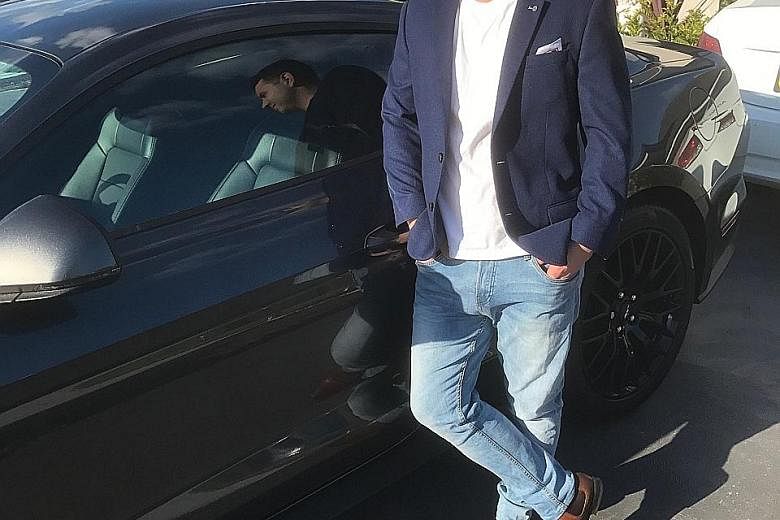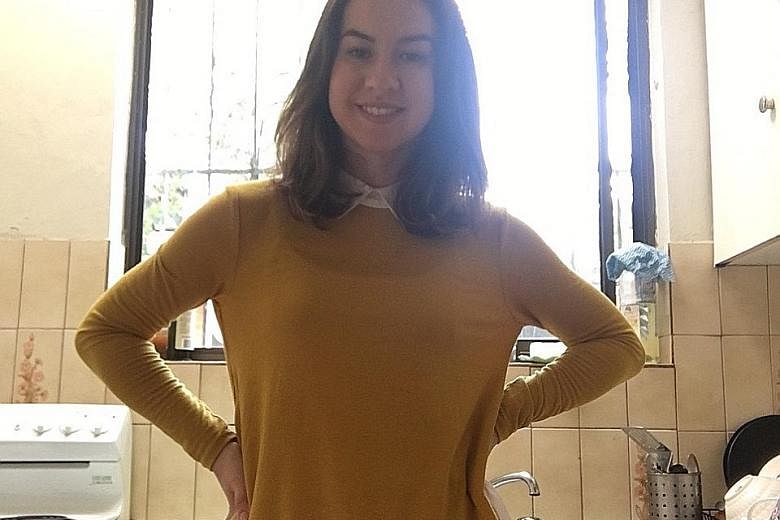Unlike the majority of Australians in their 20s, Mr Jeremy Iannuzzelli proudly lives in his own home despite soaring property prices.
In fact, the 28-year-old accountant does not just own his three- bedroom house in south-west Sydney but also an eye-watering portfolio of 12 properties.
The line-up, which comprises five in Sydney, two in Melbourne and five in the state of Queensland, is worth A$5 million (S$5.2 million), said Mr Iannuzzelli .
He said he has got to where he is through "sacrifice". To pay the A$45,000 deposit on his first property, which he bought in 2010, he worked full time as an accountant, refereed at soccer matches and waited tables at a wedding reception centre on weekends.
He got his accounting degree through attending night classes.
"If it was easy everyone would do it," Mr Iannuzzelli told The Straits Times. "It is a way of securing my future."
Mr Iannuzzelli is an outlier in Australia's growing "housing affordability crisis". Over the last five years, prices have surged 75 per cent in Sydney, 45 per cent in Melbourne and 30 per cent in Brisbane.
-
75% Surge in housing prices in Sydney over the last five years.
45% Surge in housing prices in Melbourne over the last five years.
30% Surge in housing prices in Brisbane over the last five years.
Increasingly, Australians who do not already own a home are grappling with the surging prices, caused by record-low interest rates and growing investment from abroad, particularly China.
About 13 per cent of property buyers in the first quarter of this year were first-home owners - the lowest levels since 2004 and well below peaks of more than 30 per cent in 2008, according to federal government data.
An HSBC report this year showed 28 per cent of Australian millennials (those aged 18 to 36) own a home, the second-lowest of nine countries surveyed, just above the United Arab Emirates on 26 per cent.
HAVES AND HAVE-NOTS
While home owners and investors have watched in delight as their wealth soared, younger Australians wonder if they will ever be able to afford to buy their own home.
University student Kathleen Herbert, 25, lives in a share-house with three other people in the inner-city Sydney suburb of Camperdown.
Ms Herbert works part-time as a receptionist at a youth hostel and earns about A$400-A$600 a week, with A$185 of this going to her weekly rent.
She graduates next year and would like to work in advocacy for a non-profit organisation but admits she sees few prospects of ever owning a home.
"Owning a house is something I would like to do," she told The Straits Times. "But I don't see myself ever achieving it."
As house prices have surged, wages have not kept up. As a result, the average home price is about seven times average annual incomes. Five years ago, average prices were only about 4.5 times annual incomes.
This has meant younger Australians, typically on lower incomes, have found it increasingly hard to afford a deposit, or to compete with home-owner investors who can access finance on the basis of the soaring value of their property assets.
Property analyst Lindsay David, from research company LF Economics, said he believed excessive lending by the country's banks had led to an unsustainable boom.
Australians could access loans amounting to six or more times their annual incomes, he said, compared with up to four times in the United States, France and Britain.
"Our banking system just keeps giving borrowers bigger loans," Mr David told The Straits Times.
Those who own homes also can use their property to obtain loans for more purchases, further widening the gap with those who cannot even afford their first property.
Ms Herbert estimated it would take her 10 years just to save up for a deposit on a house. She conceded there is a good chance that "I will be renting for the rest of my life".
"I feel like it is impossible to compete with investors who are on their third or fourth house who can outbid you when you have scrambled together your savings and don't have that kind of flexibility," she said.
AVOCADO FURORE
The growing divide between home owners and those who are struggling to make their way out of rental homes or their parents' spare bedrooms was captured by the continuing furore over "smashed avocados".
This debate was prompted by a newspaper column last year by demographer Bernard Salt, who argued that young Australians should save for their future rather than waste their money on smashed avocado on toast, a popular breakfast item at Australian cafes.
His point was taken up by those on both sides.
Investors and cashed-up owners claimed that younger Australians were to blame for their property-less plight. Those without homes pointed out that it would take more than 9,000 plates of smashed avocado - or 25 years of daily cafe dining - to save a 20 per cent deposit on a median-priced house of about A$1 million in Sydney.
The "avocado economics" debate resurfaced last month when property developer Tim Gurner, 35, who is worth an estimated A$473 million, caused outrage in Australia after publicly criticising young people for their lifestyles.
"When I was buying my first home, I wasn't buying smashed avocado for 19 bucks and four coffees at $4 each," he told Channel Nine's 60 Minutes programme.
Critics were quick to point out that Mr Gurner's early ventures benefited from a A$34,000 loan from his grandfather.
But the avocado argument has become a familiar refrain.
Mr Iannuzzelli, for instance, told The Straits Times that millennials "don't understand the notion of trying to live for tomorrow".
"It's not that they need to give up on avocado and toast but they need to educate themselves more about how to be financial and understand the value of money," he said.
"Maybe I'll have an avocado toast today but then not for a few weeks."
Mr David, the analyst, dismissed the claim that young people will be able to buy homes if they work harder.
"It has nothing to do with hard work," he said. "It has to do with whether your parents have a home which they are willing to use as collateral and whether the bank was willing to lend more than you should really have."
COOLING MEASURES URGED
Youth advocates say that investors such as Mr Gurner and Mr Iannuzzelli are not representative and that policymakers need to make home-owning more affordable to ensure the security of today's younger Australians.
"We are going to become one of those countries where it is who your parents are, not how hard you work," Ms Katie Acheson, head of youth advocacy organisation Youth Action, told The Straits Times.
"Housing is unaffordable - it is nothing to do with smashed avocados or how many lattes you drink a year. We have a system that is broken," she added.
Some economists have urged the federal government to scale back tax concessions for property investors. But the government has resisted, fearful of alienating investors as well as risking the political fallout from a collapse in house prices.
However, state and federal governments have looked to provide subsidies and tax relief for first- home buyers.
New South Wales, Australia's most populous state, announced last month that from July 1, first- home buyers purchasing properties worth up to A$650,000 will not have to pay stamp duty averaging about 4 per cent.
Young Australians like Mr Paniora Nukunuku, a 23-year-old who is renting government-subsidised housing in Sydney, will be watching such measures keenly.
Mr Nukunuku pays A$108 a week in rent but has been working on a casual basis in youth care for a local government and earns only about A$300 a week.
"I want to have the security of my own home," he told The Straits Times. "It is not going to be easy. I was taught to save for the one house you want to live in. But now I think I would not have to necessarily live in it. I could rent it out and pay for the mortgage."
As soaring prices skew young people's expectations and cause social rifts, there is a growing consensus that policymakers must try to fix the problem - whether through altering the tax system or adding to the housing supply or both.
"Is it (high home prices) the baby boomers fault?" said Ms Acheson. "Is it the millennials' fault? It doesn't matter. It is an Australia-wide issue - and we need to stop trivialising it with food associations."
Young investors such as Mr Iannuzzelli, meanwhile, are not going to let soaring home values curb their ambitions. His plan, he said, is "50 by 50": To own 50 homes by the age of 50.
"There is always a risk," he said. "But I feel that I have bought well in places I think are shielded."





